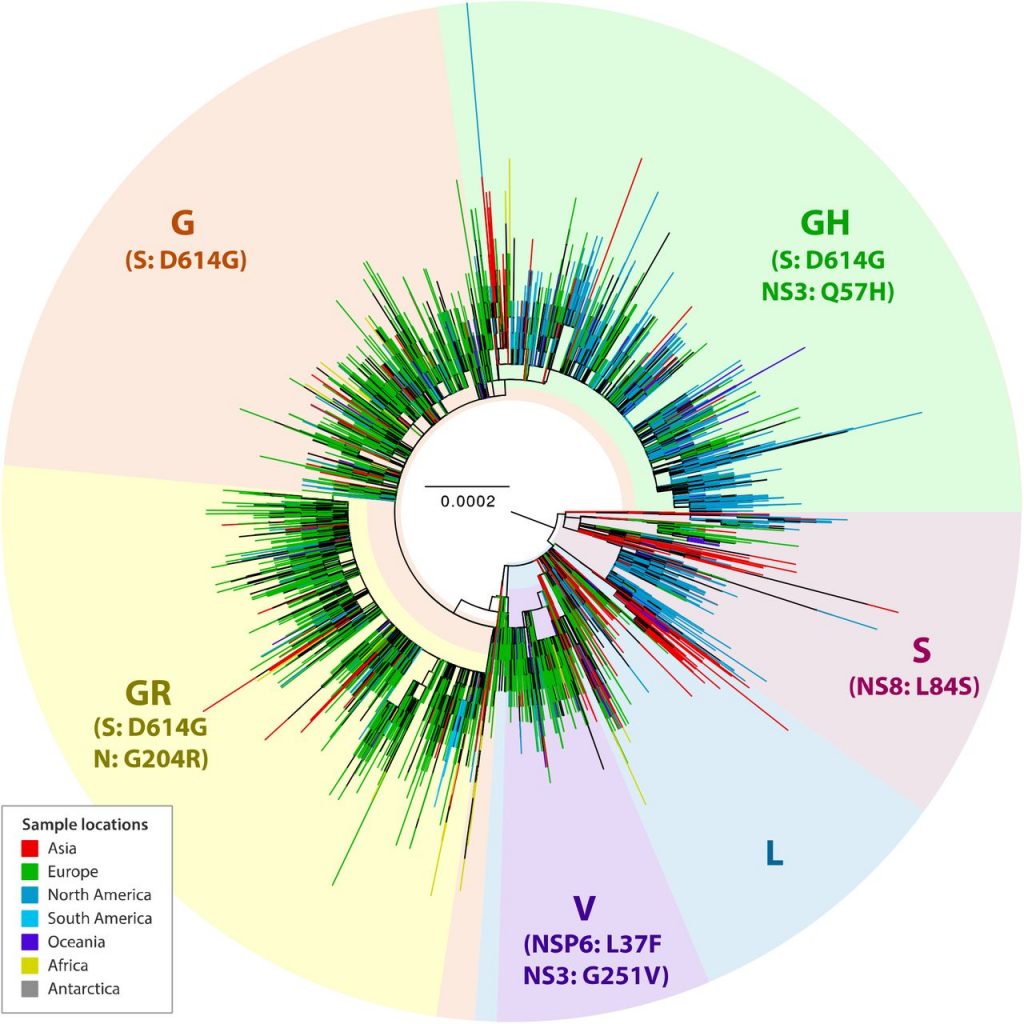Evolution of the Virus and Vaccine Effectiveness
Author: May Thongthum

A year since the pandemic broke out, COVID-19 has caused more than113 million confirmed cases and over 2.5 million deaths worldwide. In the fall of 2020, several new variants emerged in the United Kingdom, South Africa, and Brazil with varying numbers of mutations. For instance, the P.1, a variant of SARS-CoV-2 in Brazil, has 17 unique mutations,3 of which in the receptor binding domain of the spike protein and the B.1.1.7 variant in the U.K. has a large number of mutations. The main question to discuss is whether the variation has any effects on the efficacy of recently developed vaccines.
There are several studies suggesting that variants of SARS-CoV-2 could evolve to escape neutralization by the antibodies, in other words, become resistant to immunity induced by recombinant spike protein vaccines.
One finding reveals that SARS-CoV-2 that was grown in the plasma from a recovered patient (containing SARA-CoV-2 antibodies) developed mutations in one important section of the protein (the N-terminal domain) that allowed the newly formed variant to become completely resistant to the immunity induced by the vaccines. The mutations occur in a specific region of the virus that could be recognized by a sequence targeted immune response (presumably antibodies produced by B cells).
However, the human body also has T cell immunity that recognizes a full length of the spike protein, which is more difficult to not be recognized, in contrast to B cells that recognize a specific region of the virus. Although the degree to which T cells contribute to protection against SARS-CoV-2 remains unclear, the nature of the T cell response may suggest a limited effect of viral mutations on cellular immunity (Williams &Burgers, 2021). The article by Williams and Burgers presents an insightful discussion about SARS-CoV-2 evolution and vaccines. We highly recommend reading the article to learn more about this pressing issue.
References:
Figure retrieved from Leung, Kathy, Yao Pei, Gabriel M Leung, Tommy TY Lam, and Joseph T Wu. “Empirical Transmission Advantage of the D614G Mutant Strain of SARS-CoV-2.” medRxiv. Cold Spring Harbor Laboratory Press, January 1, 2020. https://doi.org/10.1101/2020.09.22.20199810.
Thomas C Williams,Wendy ABurgers. (2021). SARS-CoV-2 evolution and vaccines: cause for concern?. The Lancet Respiratory Medicine. Elsevier. Available online 29 January 2021. https://www.thelancet.com/journals/lanres/article/PIIS2213-2600(21)00075-8/fulltext